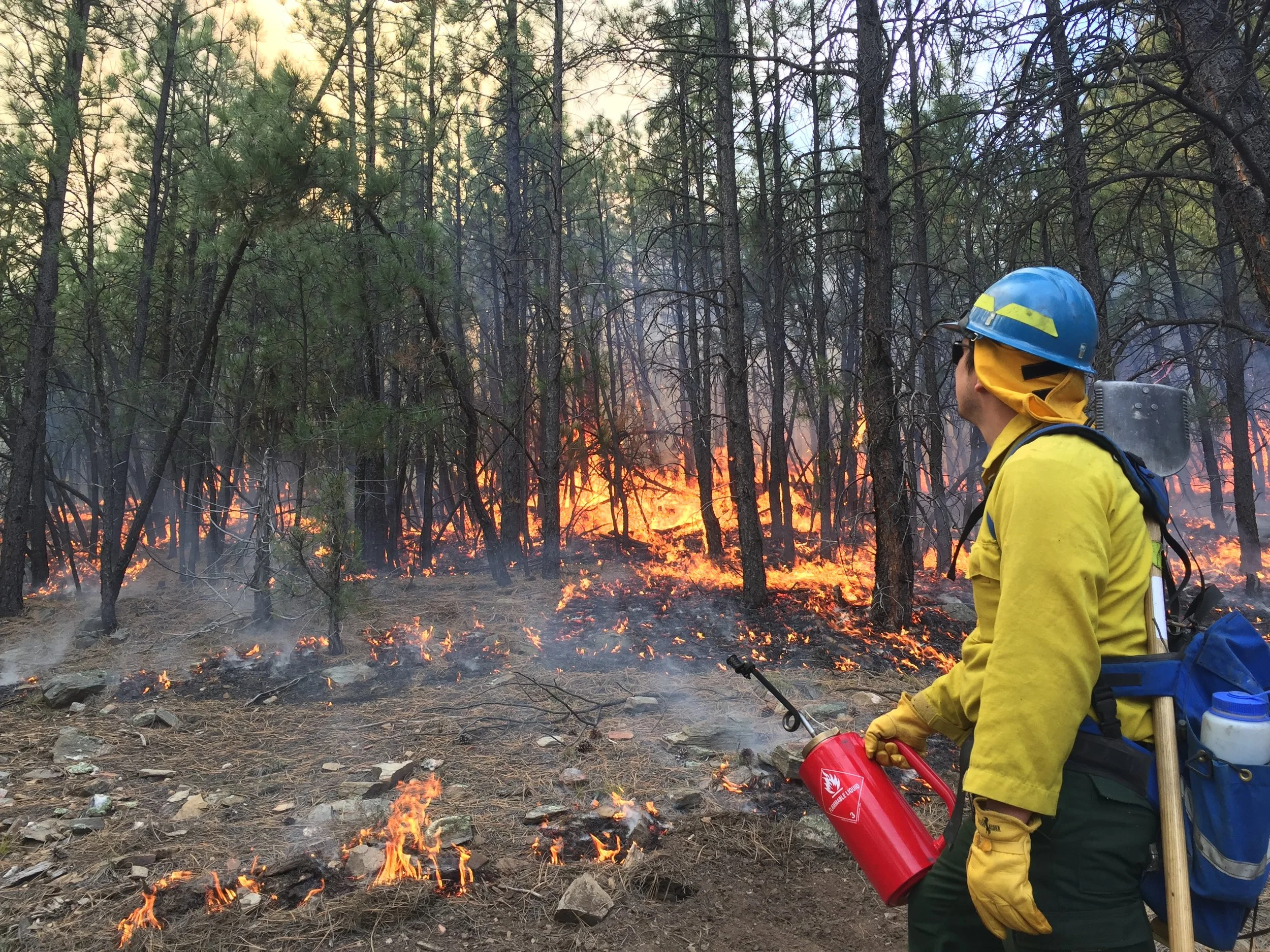The Fire Adapted New Mexico Learning Network (FACNM) is about fostering fire adapted communities - communities that acknowledge and take responsibility for their wildfire risk, and take actions to protect residents, homes, neighborhoods, businesses, infrastructure, forests, and open spaces.
Whether you are a seasoned wildland fire fighter, forester, or resident living in the wildland urban interface (WUI), there is a place for you in the FACNM; a statewide network of people willing to take collective action to increase wildfire resilience. FACNM is a place to share resources, successes, failures, and lessons learned.
Network Vision
More important than answering the question "what can you do" to reduce wildfire risk, is "what can we do?" Our collective action, as residents of a fire adapted ecosystem, has the ability to have an outsized impact compared with what single actor can achieve. There is a lot of experience and knowledge in our formal and informal networks. Technology provides us a way to formalize those connections and make sharing resources and capacity easier.
At it's core, the FACNM Learning Network is a grassroots, member driven effort. FACNM members feel empowered to take action to reduce wildfire risk to their homes and communities. Members recognize that fire has a role to play in the fire adapted ecosystems in which we live.
A community is never done with building wildfire resilience - there is no end-point. A Fire Adapted Community consists of informed and prepared citizens collaboratively planning and taking action to safely coexist with wildland fire.
Our vision is to have:
Residents build the concept of defensible space into their decisions,
Residents support one another and their communities to build fire adapted communities,
Communities integrate wildland fire into land-use planning and infrastructure decisions,
Civic institutions collaborate to be prepared for wildfire,
Architects, planners, landscapers, and developers integrate realities of fire risk into their work flow,
Communities support land managers in their efforts to restore fire-adapted ecosystems.



